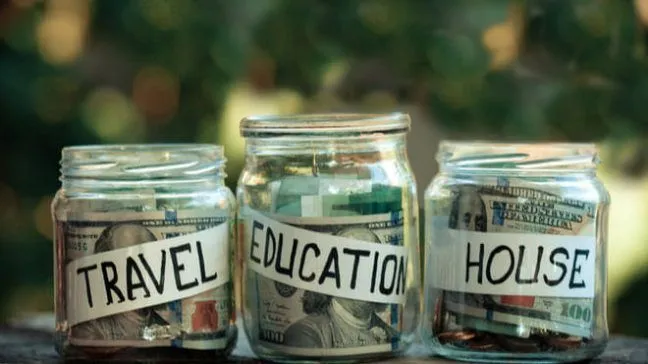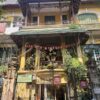I have been living and teaching in Vietnam for eight months now. I will give you the low down on what it’s like to live here. Here are the pros and cons I’ve experienced during my time.
Pros
Nature is wild

I am originally from Pennsylvania in the U.S., so the terrain in Vietnam has been entirely different than anything I’ve ever encountered. I’ve witnessed rice fields, emerald green stones, sand dunes, jungles, and stunning beaches. Vietnam’s nature will WOW you!
Food is mouth-watering
Vietnam is known around the world for its cuisine. The best foods I’ve tried in the country have always been street foods. There isn’t anything better than a big bowl of pho served to you while sipping on an ice-cold beer.

It’s cheap… like really cheap

Vietnam’s prices are very low, especially compared to the U.S. While living in Vietnam, I’ve traveled to many neighboring countries, and I found that Vietnam is one of the most affordable. Rent can be anywhere from 100 USD- 400 USD, depending on how luxurious you want to live and your location. I live in Hai Phong, the 3rd largest city, and I pay $250 for a one-bedroom modern apartment with a balcony. Street food usually costs about $1-$4 USD. If you want to eat in a restaurant for Western food, you can expect to pay anywhere between $4-$10 USD. If you’re going to buy a motor or electric bike, you can expect to pay around $150-$400 for a used bike. For groceries every week, I spend about no more than $20-$30 USD.
People are kind

I have never met more genuinely lovely people than those in Vietnam. Anytime I needed assistance, whatever it may be, Vietnamese people were willing to help. Living abroad can be extremely difficult at times, but meeting kindhearted people makes those obstacles much easier. Anytime you need help, I wouldn’t hesitate to ask a local. I have had people help me with things such as towing my motorbike and helping me to find my way.
It’s safe

When I told them I was moving to Vietnam, the first question many people asked me was, “Is it safe?”. Yes, it is. I feel safer here than I do back at home. Of course, petty crimes happen, such as getting your phone or wallet stolen. Although this is usually something you must worry about living in most larger cities. As for violent crimes/ murders, the rate is ten times higher in the U.S. than it is in Vietnam. As a woman, I take the same precautions I would take anywhere I travel. I avoid walking alone at night and always check my Grab’s (a ride-sharing app) plate number before entering the car.
Lot’s of opportunities for English teachers

When I was looking for work in Vietnam, I had no problem finding work. I am a certified teacher in the U.S. and hold a TEFL certificate. With those qualifications, you can land a job at many international schools. As for people who do not hold a teaching certificate, there are still many opportunities in English centers, public schools, and private classes.
You can save

Most English teachers I know make salaries of about 1,000- 2,500 USD per month. With the low cost of living, you can easily put some of your cash aside for monthly savings. The more local you live, the more you can save!
Cons
Public Transportation
When I first moved to Vietnam, I was convinced I couldn’t drive a motorbike. So, I attempted to get around using public transportation. Speaking from my experience in Hai Phong, public transport is confusing or almost nonexistent. While traveling all around Vietnam, I have only successfully used public transportation twice. Your best bet is to learn how to drive a motorbike if you plan to live here. If you are in the country for a short time for travel, I would recommend using “Grab,” a ride-sharing app to get around bigger cities. As for long-distance travel, I would recommend using sleeper buses and trains to get around.

Air quality and pollution

You may notice most Vietnamese people wearing surgical masks as they drive on their motorbikes. This is to protect them from pollution. The air quality in Vietnam is among the worst in the world. This past year some of the highest air quality levels were recorded in Hanoi, exceeding unhealthy standards. Currently, Hanoi has been marked as the 11th most polluted city in the world.
Traffic

Traffic can be wildly different than what you’re used to in a western country. There aren’t many traffic laws that are enforced, and in big cities, traffic jams are quite common. If you don’t like loud noises, I wouldn’t recommend driving in Vietnam. Drivers use their horns regularly to warn other drivers of their next move. At times it can be chaos.
Language barrier

The language barrier can sometimes cause confusion. Learning Vietnamese is one of the most challenging languages to learn because of its six tones, difficult pronunciation, and tricky grammar. Overall, Vietnam has been ranked in the low-proficiency category for its English proficiency. The levels of English are usually higher in touristy areas, but if you plan to settle in a less touristy spot, you may face some obstacles. I highly recommend attempting to learn the basic phrases as it will come in handy and guarantee to put a smile on the locals’ faces.
Cultural Divide
There seems to be a divide between the ex-pats in Vietnam and the local Vietnamese people. As mentioned, Vietnamese people are typically extremely kind and welcoming to foreigners. In terms of friendships, Vietnamese seem to stick to their cultural group, and foreign ex-pats do the same. Of course, there are always exceptions to this. I know this divide is partly due to the language barrier. Also, this could be related to the fact that Vietnamese people are very family-oriented, therefore spending much of their time with their family.

Culture shock

Coming from a western country to Vietnam, you will find that many of the customs are different and, therefore, will take some time to get used to. One is the noticeable difference you will see between the rich and poor. Another might be siesta time, where many places shut down for a few hours after lunchtime. Another could be the difference in the cuisine. Vietnamese people in the north still consider dog meat to be a delicacy. These things can be challenging to adjust to if they aren’t a norm for you.
Corruption

Corruption happens at many levels in the country. The most common example of this happening is with the Vietnamese police. Many foreigners get stopped while driving motorbikes. If you do not hold the correct documents or understand the officer, you may get asked to buy your way out of the situation.
That’s a wrap! I hope you enjoyed some of the pros and cons I’ve found during my time in this beautiful country. I highly recommend everyone visit Vietnam at least once in their lifetime.
Thanks for reading, and safe travels!




